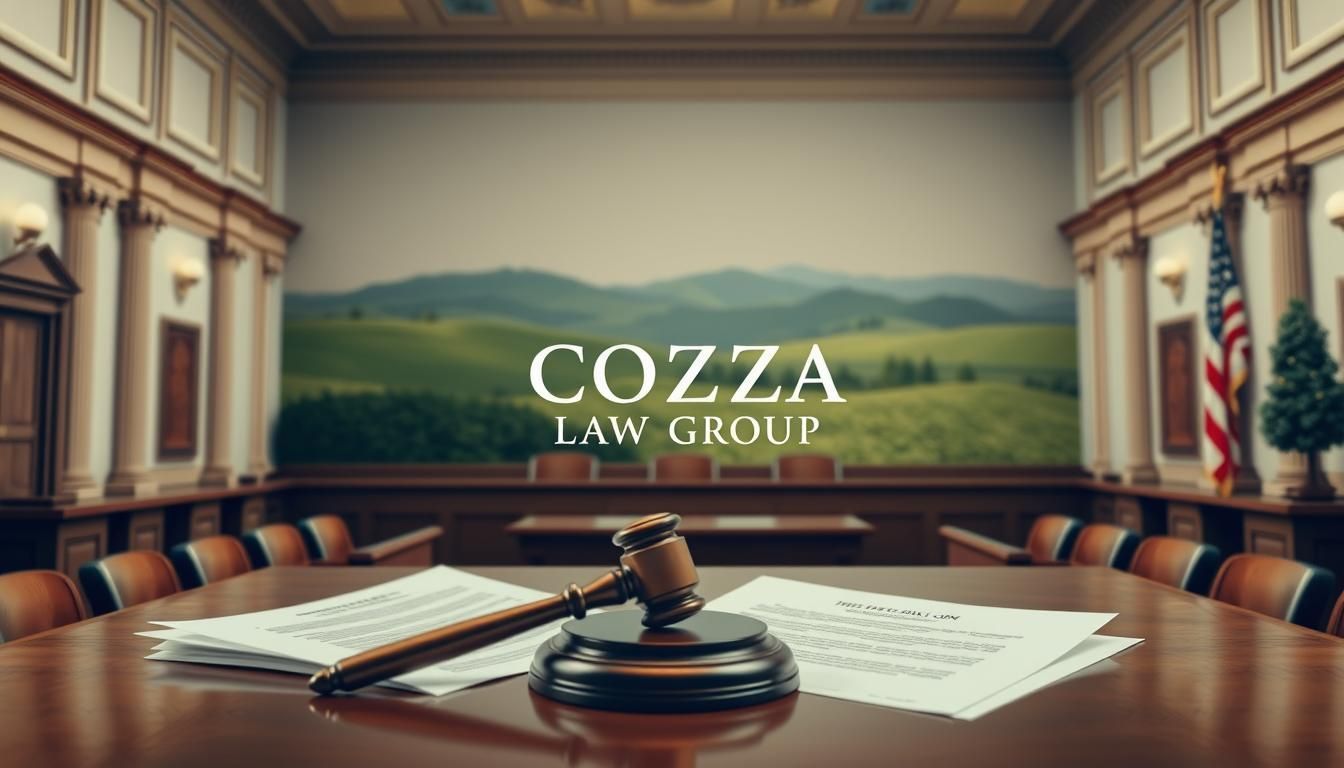Estate Planning In Pennsylvania: Essential Tips

Estate planning in Pennsylvania is key to protecting your assets and making sure your wishes are followed after you pass away. We'll help you navigate the complex world of wills, trusts, and probate in the Keystone State. Our aim is to guide you through the inheritance laws and help you make smart choices about your legacy.
In Pennsylvania, estate planning is more than just making a will. It's a detailed plan that takes into account the state's inheritance tax and recent legal updates. For example, Pennsylvania's inheritance tax hits all estates, with rates depending on who gets the inheritance.
Trusts are a big part of estate planning in Pennsylvania. Even though revocable living trusts might not be as beneficial here as in other places, they still have their uses. Irrevocable trusts are great for protecting assets and planning for taxes, especially when thinking about long-term care costs.
It's important to understand how probate works in Pennsylvania. Probate costs here are pretty low, which might affect your choice between a will or a trust for passing on assets. Make sure to think about this with a skilled estate planning lawyer.
Key Takeaways
- Pennsylvania's inheritance tax rates vary from 0% to 15% based on beneficiary relationship
- The federal estate tax exemption for 2021 was $11,700,000 per individual
- Revocable trusts become irrevocable upon death in Pennsylvania
- Probate costs in Pennsylvania are comparatively modest
- Special needs trusts can help maintain eligibility for public benefits
- Recent changes in power of attorney laws require careful consideration
- Trusts for minors may be subject to court control until a specified age
Understanding the Importance of Estate Planning
Estate planning is crucial for people in Pennsylvania who want to protect their assets and keep their legacy safe. Many think it's just about planning for death, but it's much deeper. It's about making choices that impact your life and your loved ones' lives.
What is Estate Planning?
Estate planning is about making a plan for managing and sharing your assets after you're gone. You name who gets what, create legal documents, and try to reduce taxes. In Pennsylvania, estate planning means:
- Writing a will
- Setting up trusts
- Designating powers of attorney
- Creating advance healthcare directives
These steps make sure your wishes are followed and your legacy is kept safe.
Why Estate Planning Matters in Pennsylvania
If you die without a will in Pennsylvania, the state decides who gets your stuff. This can cause fights and problems for your family. Estate planning lets you:
- Choose who gets your assets
- Decide on guardians for your kids
- Lower estate taxes
- Keep your assets safe from creditors
It's not just about money. It's about making sure your family is financially secure and at peace.
Key Components of a Comprehensive Estate Plan
A good estate plan in Pennsylvania should have:
- A will or trust for sharing out your stuff
- Durable power of attorney for money decisions
- Healthcare power of attorney for medical choices
- Advance directive or living will for end-of-life care
These parts work together to protect your assets, help with tax planning, and make sure your legacy is preserved.
Estate Planning In Pennsylvania: Legal Framework
Pennsylvania's estate planning has its own set of rules and taxes. We'll look into the main parts of the legal setup to help you understand it better.
Pennsylvania Inheritance Tax Considerations
In Pennsylvania, inheritance taxes vary by your relation to the person who has passed away. Direct descendants pay a 4.5% tax, siblings 12%, and others 15%. Spouses don't pay this tax. Knowing these rates is key to keeping your wealth safe and making sure assets move smoothly.
Recent Changes in Pennsylvania Estate Planning Laws
There have been updates to Pennsylvania's power of attorney laws. Now, "hot powers" need to be given in legal papers. These special powers let you:
- Make gifts
- Change who gets your assets
- Set up or change survivorship rights
- Give away powers given to you by a power of attorney
The Role of an Estate Planning Attorney
An estate planning lawyer is key in dealing with Pennsylvania's probate and inheritance laws. They make sure your plan follows the latest rules and fits your goals. If your estate is over $50,000 or has complex assets, you'll need a lawyer's help. They can assist with taxes, protecting assets, and solving family disputes.
In Lancaster County, planning your estate means thinking about local laws and what you want for your family. With a yearly gift tax exclusion of $18,000 and a Unified Credit Exemption of $13,610,000, planning well can greatly affect your legacy. Getting help from an experienced estate planning lawyer is crucial for your family's future.
Essential Estate Planning Documents
Estate planning in Pennsylvania is more than just making a will. It's about having all the right documents to keep your assets safe and your wishes clear. Let's look at the main parts of a strong estate plan.
A last will and testament is the core of your estate plan. It tells who gets your assets after you're gone. Without one, Pennsylvania's laws decide who gets what, which might not be what you wanted.
Trusts are key in estate planning. Revocable trusts let you change your mind and avoid probate by moving assets before you die. Irrevocable trusts can lower estate taxes and protect your assets.
Power of attorney is crucial too. It lets you pick someone to manage your money if you can't. This way, your wishes are followed, even if you can't speak for yourself.
An advance health care directive shares your medical treatment choices. It names someone to make health decisions for you and sets out your care wishes. This ensures your medical care is in line with what you want, even if you can't say it yourself.
For families with young kids, picking a guardian is a must. It tells who will look after your children if you can't. This gives your family peace of mind and security.
- Last will and testament
- Revocable and irrevocable trusts
- Power of attorney
- Advance health care directive
- Guardianship designations
With these documents, you make a full estate plan. It keeps your assets safe, respects your wishes, and looks after your loved ones.
Trusts as Powerful Estate Planning Tools
Trusts are key in estate planning, offering many benefits for protecting assets and planning taxes. In Pennsylvania, trusts are getting more popular for handling and passing on assets. Setting up a trust costs between $1,500 to $3,000, based on how complex it is.
Revocable Living Trusts
Revocable living trusts let you keep control of your assets while you're alive. They help skip the probate process, making it easier to transfer property after death. Many people in Pennsylvania put their main home in these trusts to make passing it on smoother.
Irrevocable Trusts
Irrevocable trusts protect assets and can offer tax benefits. Once made, you can't change these trusts, making them a safe way to move wealth. There are different types, like irrevocable life insurance trusts and charitable remainder trusts, each with its own estate planning goals.
Special Needs Trusts
Special needs planning is vital for families with disabled members. Special needs trusts help ensure that beneficiaries get the care they need without losing government benefits. These trusts pay for extra costs not covered by government programs, improving the lives of people with disabilities.
In Pennsylvania, trusts provide many options for estate planning. They can help avoid probate and take care of pets after you're gone. But, it's important to follow trust rules closely to avoid legal trouble. Working with experts is key when setting up and managing trusts.
Planning for Incapacity and Healthcare Decisions
Estate planning is more than just about who gets what after you're gone. It's also about planning for when you can't make decisions for yourself. In Pennsylvania, you need certain documents for these situations.
Durable Power of Attorney
A durable power of attorney lets someone else handle your money matters if you can't. It's a must-have for people in risky jobs like police or construction workers in Pennsylvania. This way, your money is looked after as you'd want it to be if you couldn't do it yourself.
Advance Health Care Directives
Healthcare planning means making advance directives. These tell others what medical steps you want and who should make decisions for you. In Pennsylvania, this includes a Durable Healthcare Power of Attorney. It's super important for those in jobs like emergency services or the military, where health issues can happen suddenly.
Living Will
A living will is a type of advance directive. It spells out your wishes for end-of-life care. It's a must-have for everyone, no matter what you do for a living. It helps your doctors and family know what medical treatments you want or don't want in tough times.
Not having these documents means someone else might make choices for you that you wouldn't agree with. In places like Berks County, Pennsylvania, talking to estate planning lawyers can make sure your plan is solid and up to date. It's a good idea to update these documents as your life changes.
Conclusion
Estate planning in Pennsylvania is complex but very important. We've looked at the legal basics and how to make key documents like wills and trusts. The Cozza Law Group PLLC is here to help you make a plan that fits your wishes and follows the law.
Digital wills are becoming more popular in estate planning. With new technology, it's important to think about how digital stuff fits into your plan. A good estate plan helps avoid legal fights and makes sure your wishes are followed.
In Pennsylvania, executors have a lot to do, like managing assets and filing taxes. The probate process can take a long time, sometimes months or even years. With the help of experts, you can get through these tough times faster, saving time and money for your loved ones.
We urge you to take action in planning your estate. Whether it's making a will, setting up trusts, or dealing with digital assets, getting expert advice is key. Don't risk your legacy - start planning now for your family's future and your own peace of mind.




